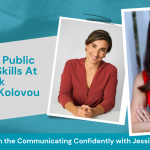Developing Self-Confidence In a Global World
Developing cross-cultural confidence takes work. This is especially true if you are used to operating within one context. The context you are used to, may not translate seamlessly in another context.
According to a recent survey, one of the biggest challenges for cross-cultural teams is some people may be less likely to let their voices be heard. You need to develop self-confidence to ensure your voice is heard while working in different contexts and cultures.
Below are two things to consider to feel more confident when working in a new culture or context.
1. Understanding Context
To feel more self-confident, you need to understand the context. The context in which you work will guide your communications and interactions. You need to know how and when to communicate when working on a global team.
Consider the following:
- What do people value – If you want to boost your confidence when working in the global world, find out what the people around you value. Not only will this help you integrate, but it will also help you understand what motivates people. For example, in some cultures being on time is incredibly important, while in other cultures being on time isn’t as valued. If you are in a culture where being on time is important, you need to make sure you are aware of this and do your best to show up on time, even if your culture doesn’t value this. The more you can show you appreciate what they value, the more confident you will be.

- High or low-context – As you begin to work with people from different cultures, knowing whether or not you are working in a high or low-context culture will help boost your self-confidence. A high-context culture is much more implicit in their communications. This means you will want to pay attention to how you carry yourself and your body language. You will also want to notice these things in the people around you. This will help you understand the culture and also the communications. However, communications are much more explicit if you are in a low-context culture. This means there might be a lot of signs, more notes, and more emails than you are used to. In low-context cultures, you may want to over-communicate. The more you understand the context, the more confident you will be.
The more you understand what people value and the type of context you are working in, the more self-confident you will be.
2. Emotional Intelligence
High emotional intelligence can go a long when boosting your self-confidence in a global working world. The more emotionally intelligent you become, the more powerful you will become at communicating.
Consider the following:
- Social Awareness – When you have high emotional intelligence, you are more attuned to others and their thoughts and feelings. This can really help you feel more self-confident when working cross-culturally. For example, if you are working with someone and notice their body language shift, you would know they are suddenly uncomfortable. Perhaps they were called on during a meeting and didn’t know the answer. Or, maybe they forgot their meeting notes. When you have high emotional intelligence, you can immediately pick up on these subtle cues, even if you don’t speak the same language.

- Self-Awareness – Being self-aware is critical to emotional intelligence. Do you come across as loud or quiet? Do people feel intimidated by you? These are all questions you can ask yourself as you become more self-aware. If you aren’t sure, ask close friends what they think. For example, if you are in a group setting, do you listen to the person speaking, or are you trying to talk over them? A person with a strong self-awareness would know they should wait their turn to speak. Otherwise, they may hurt the feelings of the person talking.
- Relationship Building – It can be challenging to create new relationships with people from other cultures. However, it is essential to build those relationships so you can work cross-culturally. High emotional intelligence can help you build these relationships much more quickly. For example, to build relationships, you need to look inward at yourself and think about how you act and think. Then, you can look outwards and consider how you can make build relationships with others. It may take some time and self-reflection, but when put into practice, you will find building relationships becomes much easier.
When you have high emotional intelligence, you will be able to understand how you should carry yourself in different environments. This will help you become more self-confident in a global world.
When it comes to working, it is not always a one-size-fits-all model. Depending on who you are working with, where you are working, and who you are communicating with, you want to make sure you are adjusting.
__
Whenever you’re ready, there are 3 ways we can help you:
- Discover your communications style so you know where to start. Over 4,000 people have found theirs here.
- Attend our monthly communication workshop to build communications confidence (new topics: public speaking, advocating for yourself, building credibility, etc) here.
- Get your brand in front of 43k+ people by sponsoring our newsletter or Soulcast Media | LIVE LinkedIn events [contact: hello@soulcastmedia.com]











